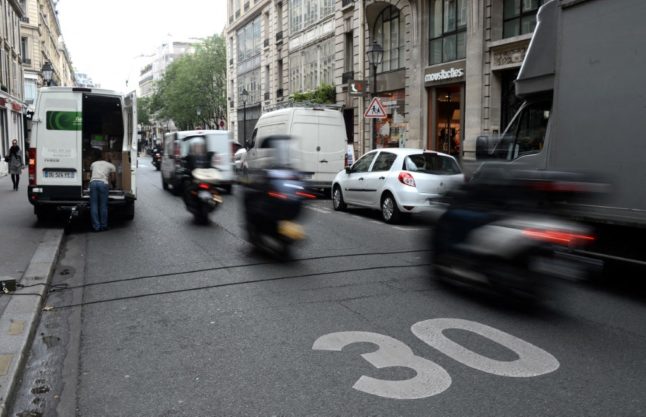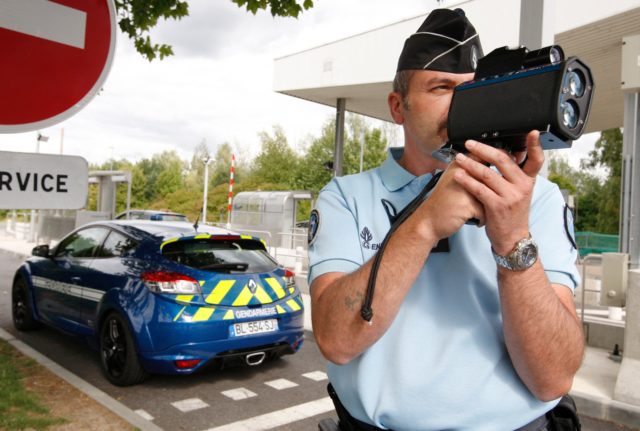A Briton was recently banned from driving in France for 18 months, fined a total of €600 and handed an eight-month suspended prison sentence after seriously injuring a student while speeding on the wrong side of the road while under the influence of alcohol and drugs.
But he avoided more serious punishment because, the court said, French law does not allow for the permanent withdrawal of a foreign-issued driving licence.
The court heard that the British motorist was driving at twice the speed limit, was nearly three times over the legal limit for alcohol in France, and tested positive for cannabis when the incident occurred in Cahors, Lot, in May 2023. He had recently moved to the area, according to Actu Lot.
The case, and the court’s ruling, raises important points about French law regarding driving licences.
While technically licences issued outside of France cannot be permanently confiscated and points cannot be withdrawn from them, there are other serious considerations people should take into account when driving on a foreign-held licence in France, including how long they have been resident here.
People visiting France on holiday
Motoring message boards on social media frequently include discussions in which foreign motorists driving in France on holiday have had their licences temporarily confiscated by police – but they are usually returned a few weeks later.
Some drivers recommend paying for an International Driving Permit, just in case – even though motorists from many countries do not need them to drive in France, because the law allows police in France to provisionally confiscate licences for certain driving offences.
If you’re coming to France on holiday, then there is usually no problem with driving on the licence of your home country, whether you’re bringing your own car or renting one once you arrive.
Technically, France cannot remove points from a foreign driving licence, but you can still be forced to pay a fine or deal with any criminal ramifications from a driving offence. Additionally, if the fine is not paid, your car could be impounded.
READ MORE: What to do if you get a speeding ticket while driving in France
Residents of France
If you live in France, however, it’s a different story. You may be ordered to exchange your licence if you commit certain traffic offences. As a result, once you are forced to switch onto a French licence, you could lose the points that you would have if your licence was not foreign-issued.
On top of that, after a certain period of residency (usually one year, although there is a slightly different system for UK licences) you are legally required to swap your licence for a French one, if you want to drive here.
READ ALSO Is it illegal to drive on a foreign licence if you live in France?
The process for swapping your licence depends on where you learned to drive in the first place will dictate whether you have to take a French driving test. Here’s a country-by-country breakdown of the rules.
For Britons, a 2021 agreement allows people who live in France and hold a UK or NI licence issued before January 1st, 2021 to continue using them as before.
They only need to exchange when their photocard licence or actual licence runs out. You can apply to exchange your licence for a French one once you get within six months of the expiry date of either the licence or the photocard, whichever is first.
Anyone driving on a licence issued after January 1st, 2021, will need to exchange it for a French one within one year of moving to France.
READ ALSO EXPLAINED: How to swap your UK driving licence for a French one
Exchanging your licence is a time-consuming bureaucratic process and for many people it simply feels like too much hassle – especially if you don’t own your own car and just occasionally drive a rented vehicle or one lent to you by a kindly friend or neighbour.
This is especially the case for people who have a driving licence from a country (or certain states of the USA) that doesn’t have a reciprocal agreement with France, as they have to take a French driving test in order to get a licence in France.
What do you risk if you carry driving on your old licence?
The French government is clear: “The exchange for a French licence is compulsory in order to be able to drive in the long-term in France.”
If you are a non-EU citizen, your visa or residency permit provides clear proof that you live in France, so in most cases it’s unambiguous that you should have swapped your licence if you are stopped by police.
Driving while not having a valid licence carries a penalty of up to a year in prison sentence and a fine of €15,000.
READ ALSO 5 things Brits in France need to know about swapping driving licences
Since 2014 a fast-track system has been in place in which people who meet certain criteria (first offence, not involved in any other traffic offences) can immediately plead guilty and take an €800 fine.
Be aware, too, that drivers using a foreign licence they really shouldn’t because they live permanently in France, may be driving uninsured, even if they’re paying for vehicle insurance – because driving on the wrong licence invalidates it.
If you have an accident while driving, even if it’s not your fault, you will need to contact your insurance and if you’re showing a French address and a non-French licence, questions will be asked.
Listing an address that’s not your actual place of residence counts as lying to insurers, which can result in the refusal of your claim, and could lead to prosecution.



 Please whitelist us to continue reading.
Please whitelist us to continue reading.
One issue which causes continuous angst and occasional incorrect responses from French traffic police officers is the entitlement to continue to drive in France using UK-issued driving licenses until the date of their expiry.
Some useful information can be found on the French Govt’s web page (in English):
https://www.service-public.fr/particuliers/vosdroits/F1460?lang=en
This also contains helpful information for members of other non-EU nations.